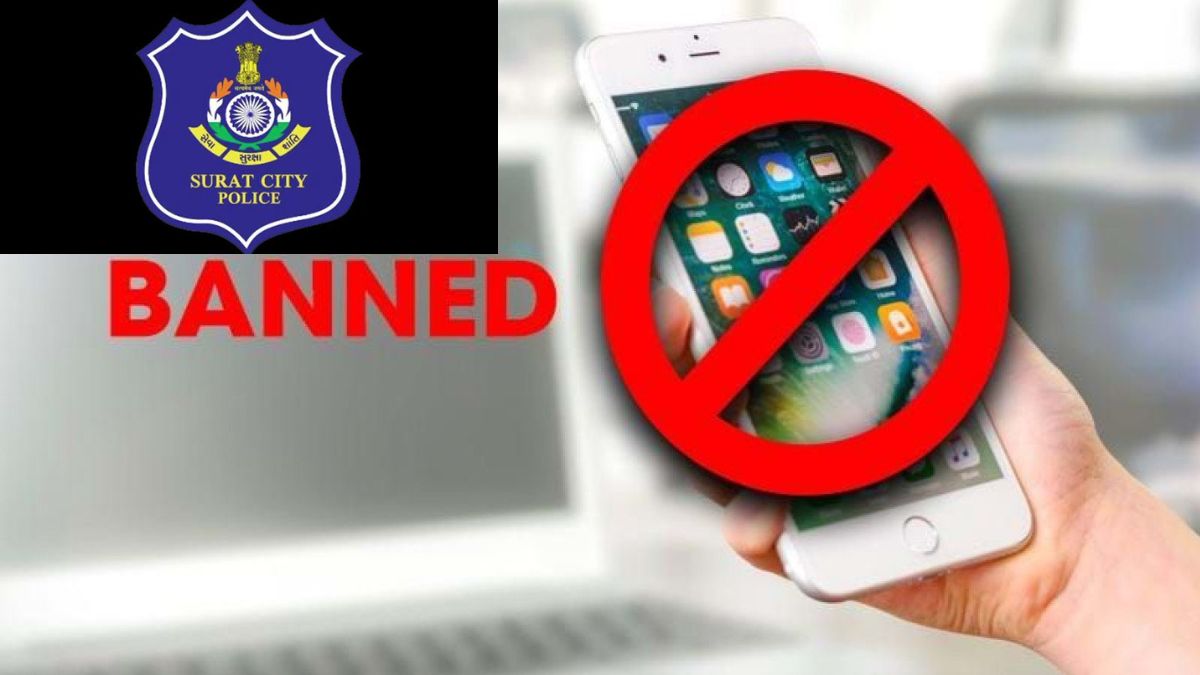Surat residents face Real-Life ‘Levels’ with Mobile Phone Ban Dilemma for justice
However, what has raised eyebrows and provoked intense debate is the requirement for visitors to deposit their mobile phones in a tray before entering the Police Commissioner's office.

Advertisement
Surat : If you’ve ever played a video game, you’re likely familiar with the concept of qualifying “levels” to reach the ultimate goal and win the game. In Surat, it appears that common citizens are facing a similar challenge in their real-life quest for justice.
To meet the Surat Police Commissioner and address their problems or complaints, they must navigate through an intricate maze of bureaucratic obstacles, akin to passing through multiple gaming levels.
However, what has raised eyebrows and provoked intense debate is the requirement for visitors to deposit their mobile phones in a tray before entering the Police Commissioner’s office. This seemingly arbitrary act has ignited a firestorm of questions because there is no law or directive from either the courts or the State Government mandating such a restriction.
Sanjay Ezhawa, a passionate social activist closely monitoring the plight of individuals seeking justice from the police commissioner, has taken a stand. He recently penned a scathing letter addressed to Gujarat Chief Minister Bhupendra Patel and Gujarat Home Minister Harsh Sanghavi, shining a spotlight on the sorry state of affairs within the Surat police department.
Ezhawa’s letter highlights a troubling reality—a common person in Surat must pass through at least five “levels” before securing an audience with the Police Commissioner. Each level presents its own set of challenges and delays, painting a picture of a justice system that’s anything but swift and efficient.
The Five Challenging Levels:
Police Constable and Sub-Inspector: The journey begins at the local police station in Surat, where victims first interact with the police constable and sub-inspector.
The Waiting Game: Victims who are fortunate may eventually meet the police inspector on duty. However, more often than not, they find themselves stuck at the police station, sometimes waiting for more than three hours.
Assistant Commissioner of Police (ACP): For those unsatisfied with the police inspector’s response, the next step is to approach the ACP. The ACP tries to mediate by contacting the police inspector, but in many cases, these attempts fall on deaf ears as inspectors disregard ACP calls.
Deputy Commissioner of Police (DCP): If victims still don’t receive a satisfactory resolution, they must take their case to the DCP’s office. Here, the DCP’s personal assistant conducts a rigorous verification process, checking if the victim has visited the police station and submitted their complaint. Before meeting the DCP, victims are required to deposit their phones outside the DCP’s cabin. If they return to the police station afterward, they often face reprimands from the police inspector.
Meeting the Police Commissioner: The final level is the most arduous. Visitors must undergo a thorough screening by the office staff, often spending hours waiting. Only after numerous visits might they have the opportunity to meet the Police Commissioner.
Ezhawa emphasizes that for an average citizen in Surat to resolve a legal issue, it may take a minimum of 60 days to navigate all five levels. In stark contrast, individuals with influential contacts can often expedite the process, potentially resolving their issues within days.
Ezhawa himself experienced this convoluted process when he sought to meet the Additional Commissioner of Police, Sector-2. He was asked to deposit his mobile phone before the meeting, a demand he found unnecessary and protested by walking out. He questioned the logic behind such a policy, asking, “Who are the officers afraid of? Can someone carry a bomb in the form of a mobile despite metal detector checking?”
Advertisement

